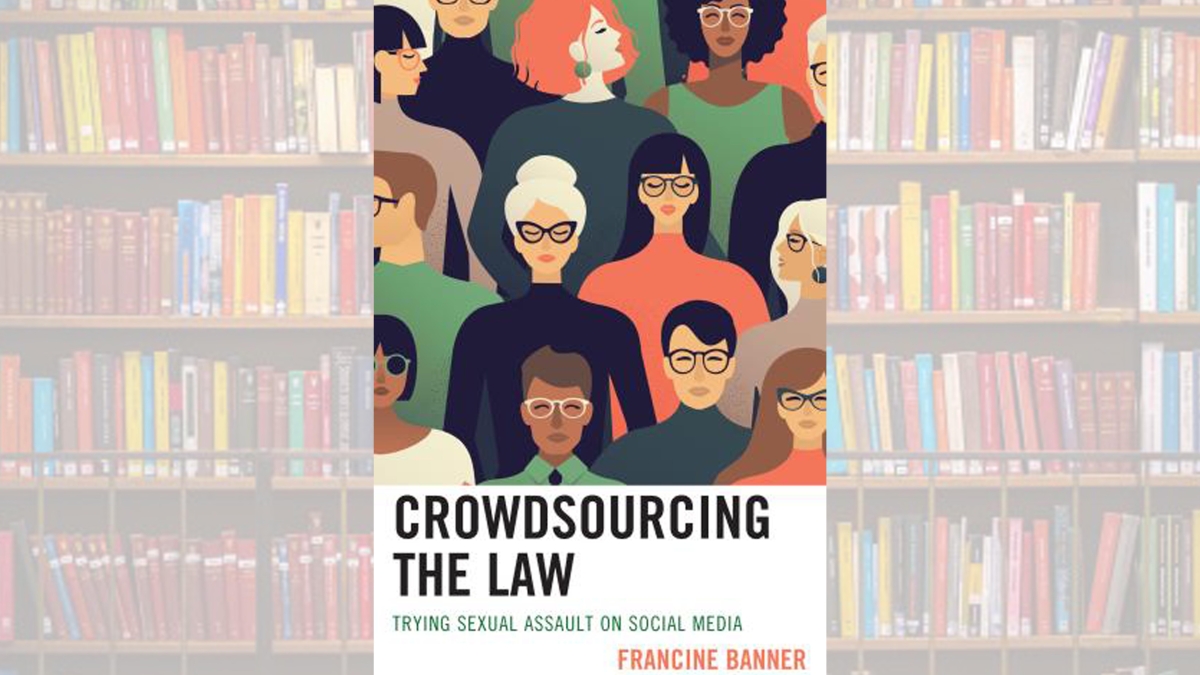Justice studies alum receives honorable mention at ASU book awards

"Crowdsourcing the Law: Trying Sexual Assault on Social Media." Source: Roman & Littlefield
Francine Banner, graduate of the justice studies Phd program at Arizona State University's School of Social Transformation was recently selected for an honorable mention at the ASU Humanities Book Awards for her book “Crowdsourcing the Law: Trying Sexual Assault On Social Media.”
The honorable mention was awarded by the Institute of Humanities Research at ASU, which holds a book award reception annually to highlight writers who foster new directions in their disciplines.
The book explores the discussion of sexual assault, particularly on social media. Banner said these digital conversations are more crucial than some would initially believe, and that they can have an impact on courtroom decisions.
“Some people dismiss conversations on the internet as ‘throwaway’ speech, but I argue that in fact the court of public opinion is shaping the law. How the formal legal system will react to and incorporate public opinion remains to be seen,” Banner said.
A major example that Banner discusses is the #MeToo movement, which has led to significant legal changes, such as extending statutes of limitation or even the removal of judges. Other online campaigns have also successfully petitioned for the retrial of people who may have been wrongfully convicted.
While it is clear that social media plays a major role in creating movements and important conversations, the formalities of the legal system can often blur the significance of everyday talk and commonsense. Banner said this idea was a major inspiration when writing the book.
“I am fascinated by how law is being shaped in the context of everyday conversations. What we might call ‘common sense’ ideas have always had an impact on legislation and court decisions,” she said.
Banner said she was also inspired to explore how social media commentary is affecting sexual assault law because it is an area of law that is heavily impacted by race and gender bias. Social media has helped to bring these issues to light to create new conversations and lessons on the disparities in the legal system.
“We are at a time when public awareness of the flaws in the criminal justice system is at an apex. The public is rightfully angry at the system for its historically biased treatment of victims and the wrongfully accused,” Banner said.
While researching for the book, Banner focused on recent accusations of well-known figures such as Bill Cosby and Donald Trump, and used discourse analysis to closely study a small number of comments on social media to explore overall consciousness about sexual assault.
“What we have to say about these highly publicized cases is important because they provide a space for us to discuss and debate how we feel about contested social issues, to assess the state of our values and norms, and to consider what law should look like in the future,” Banner said.
While discussion on social media can be impactful and important, Banner does not dismiss the fact that opinions on the internet can also be very quick to raise judgements without receiving full information.
“The public also often races to judgment. On social media there is an excess of public shaming and often not a lot of due process,” Banner said.
Banner said her experience at ASU helped her develop into an interdisciplinary teacher and scholar. It pushed her to broaden her studies and think critically both in and outside the classroom.
“ASU fostered my commitment to praxis — that theoretical work must be connected to creating social justice and social change,” Banner said.
Banner plans to continue exploring the topics in her book as well as other aspects of sexual assault and social media. She believes it is important to always analyze and discuss public reactions to allegations and law because it reflects where it is going.
“Because so few sexual assault cases actually reach conviction, I argue that examining the public discussion of these allegations provides a unique and important lens into the real-life operation of sexual assault law today,” Banner said.
More Arts, humanities and education

ASU instructor’s debut novel becomes a bestseller on Amazon
Desiree Prieto Groft’s newly released novel "Girl, Unemployed" focuses on women and work — a subject close to Groft’s heart.“I…

‘It all started at ASU’: Football player, theater alum makes the big screen
For filmmaker Ben Fritz, everything is about connection, relationships and overcoming expectations. “It’s about seeing…

Lost languages mean lost cultures
By Alyssa Arns and Kristen LaRue-SandlerWhat if your language disappeared?Over the span of human existence, civilizations have…

